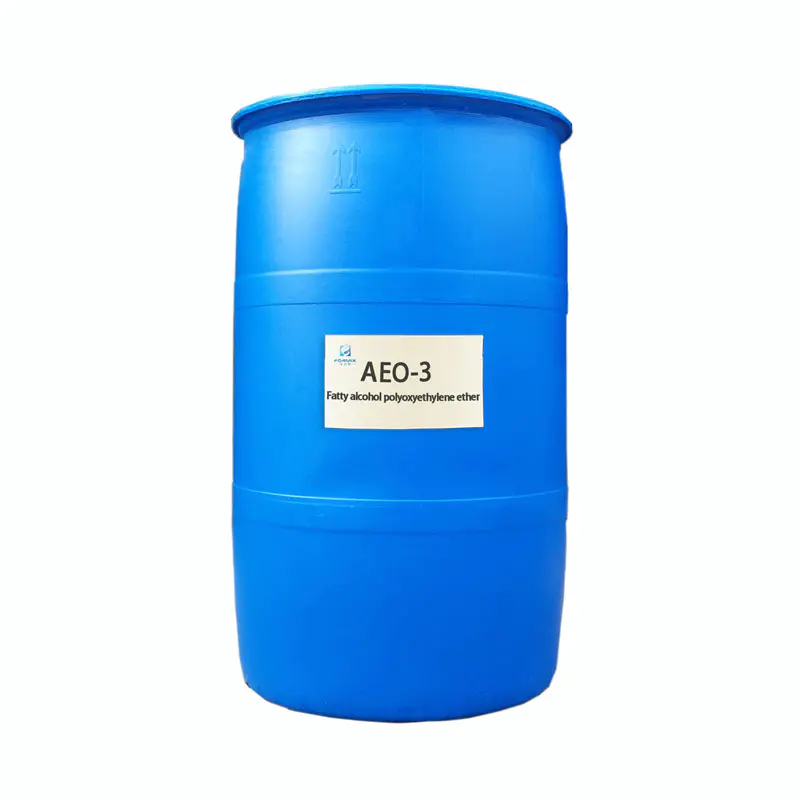What is a Non-Ionic Surfactant and How Does It Work?
2025-02-17
Surfactants are an essential ingredient in a wide range of cleaning, cosmetic, and industrial products. They’re known for their ability to lower the surface tension of liquids, allowing them to spread more easily or mix with other substances. Among the various types of surfactants, non-ionic surfactants stand out for their versatility and mildness. In this post, we’ll explore what non-ionic surfactants are, how they work, and where they are used.

What Are Non-Ionic Surfactants?
Non-ionic surfactants are a type of surfactant that does not carry a charge. Unlike anionic surfactants (which are negatively charged) or cationic surfactants (which are positively charged), non-ionic surfactants are neutral. This neutral charge allows them to interact with a wider variety of substances without causing unwanted reactions.
How Do Non-Ionic Surfactants Work?
The main function of non-ionic surfactants is to help reduce the surface tension between two substances, such as water and oil. This makes them excellent emulsifiers, enabling oil and water to blend together. They work by having hydrophilic (water-loving) heads and hydrophobic (water-hating) tails. The hydrophilic head interacts with water, while the hydrophobic tail binds with oils or grease. This interaction helps disperse oils, remove dirt, and improve the overall cleaning power of a product.
Common Applications of Non-Ionic Surfactants
1. Personal Care Products: Many shampoos, body washes, and facial cleansers use non-ionic surfactants due to their gentle nature. They cleanse effectively without irritating the skin, making them ideal for sensitive skin types.
2. Household Cleaning: Non-ionic surfactants are found in detergents and all-purpose cleaners. Their ability to dissolve oils and grease while being mild on surfaces makes them a popular choice in household products.
3. Industrial Cleaning: In industries where heavy-duty cleaning is required, non-ionic surfactants are used to remove grease, oil, and grime from machinery and equipment. They’re often incorporated into degreasers and industrial cleaning formulations.
4. Pharmaceuticals and Food Industry: Non-ionic surfactants are often used as emulsifiers in pharmaceutical and food products, ensuring that ingredients mix together smoothly and evenly.
Why Choose Non-Ionic Surfactants?
- Mild on Skin: Non-ionic surfactants are less likely to cause irritation, which is why they’re commonly used in products designed for sensitive skin.
- Good for Hard Water: Unlike some other surfactants, non-ionic types perform well in hard water without forming soap scum.
- Versatile: They can be used in both acidic and alkaline formulations, making them adaptable to a wide range of products.
Conclusion
Non-ionic surfactants are a versatile, effective, and mild choice for various applications. Whether you're making skincare products, household cleaners, or industrial degreasers, their neutral charge and ability to handle a wide range of substances make them an essential ingredient in many formulations.
Qingdao BAETY New Materials Co., Ltd. is a leading supplier of high-quality chemical products in China. Our main products include Nonyl Phenol, Nonyl Phenol Ethoxylates, Lauryl Alcohol Ethoxylates, Defoamers, AES(SLES), Alkyl Polyglycoside/APG, etc.
Visit our website at https://www.btchemicals.com/ to learn more about our products. For inquiries, you can reach us at sale@btchemicals.com.

